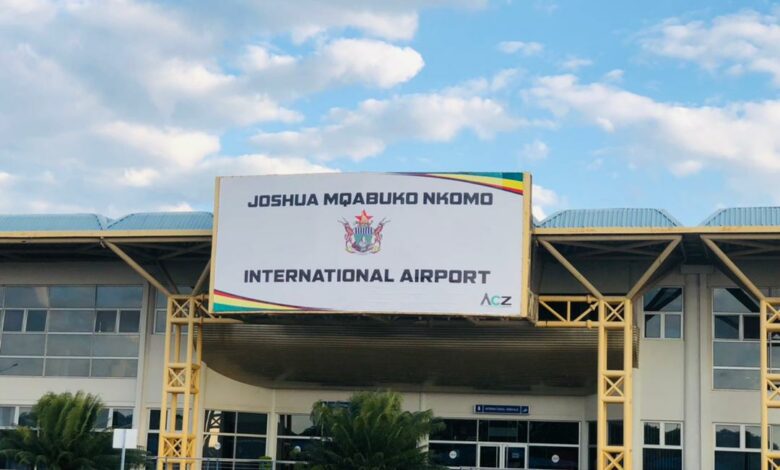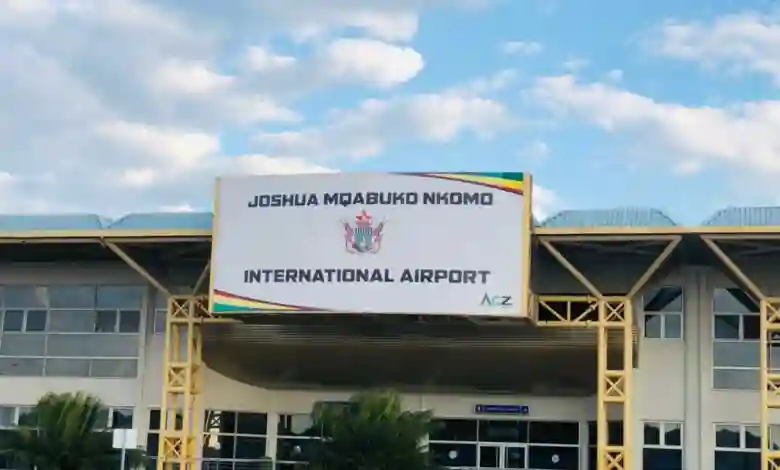Activists in Bulawayo are not happy with a recent move by authorities to change signage at the Joshua Mqabuko Nkomo (JMN) International airport.
The Ndebele cultural shield was removed from the airport and replaced with the government’s Coat of Arms emblem.
A shield, a knobkerrie and a spear, which were traditional African weapons used by warriors in battle, were part of the signage at the airport.
Activists claim that the change of the signage could be an attempt to undermine the legacy of the Ndebele kingdom and that of late nationalist, vice president, Joshua Nkomo.
Speaking in an interview with CITE, social analyst, Effie Ncube, said the Government should have consulted people from Matabeleland before changing the signage at the airport. Said Ncube:
They should not have changed the signage without consulting the host people of Matabeleland but ought to have engaged the people to explain why they needed to change it.
People who stay here associate and believe what the shield means but the new emblem or sign that has been put is not recognisable.
There is no question that the airport is located in Bulawayo and the consistent symbols that have been used are either the elephant or the shield, traditionally that is what people know.
By and large, they should consult people first. This shows they are undemocratic and seek to erase the history of Matabeleland.

Ibhetshu LikaZulu Secretary-General, Mbuso Fuzwayo, argued that the move by the Government erodes a people’s culture. He said;
The government can go around fooling people that it is promoting culture but it can only promote their interests and their preferred narrative.
They don’t want to recognise that the culture of Zimbabweans is diverse.

However, critical studies scholar, Khanyile Mlotshwa, said there was nothing wrong with replacing the shield, knobkerrie and spear with the Coat of Arms. Said Mlotshwa:
here is no problem because Nkomo is and was a national figure. The shield is an emblem in some other African countries and this could have been a source of confusion when travellers landed in the country.
Worse in a country where Ndebele nationalism competes with Zimbabwean nationalism, in what Professor Ndlovu-Gatsheni calls bimodal nationalism. The move clearly fixes Nkomo as a Zimbabwean national figure that he is.

